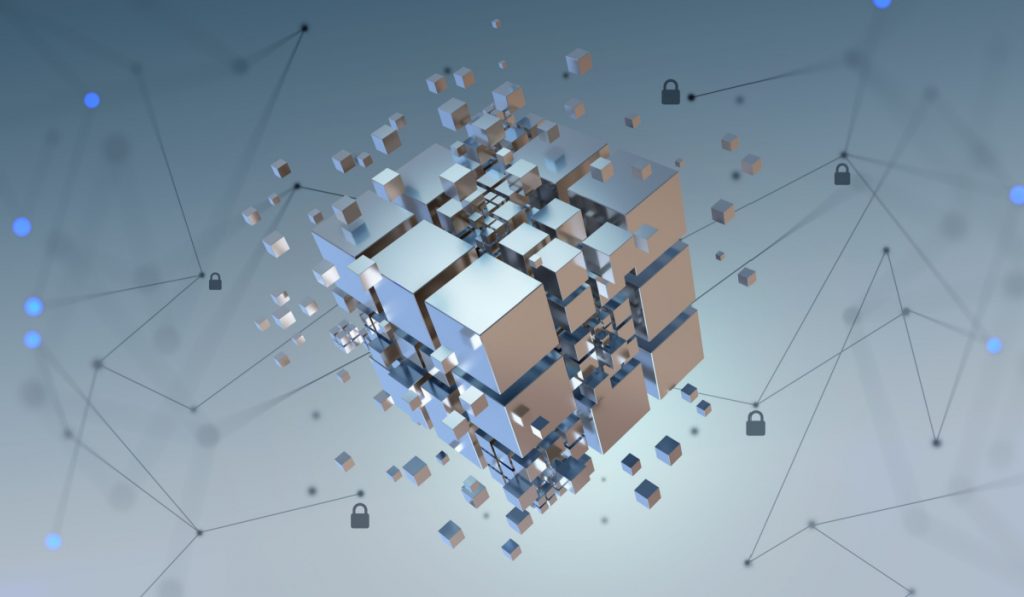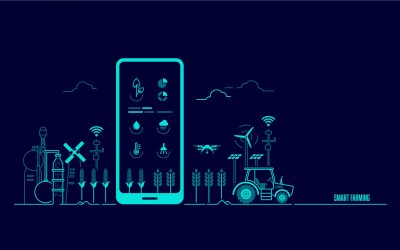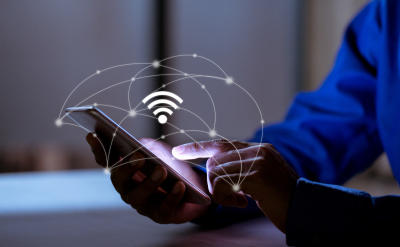- One of the most intriguing potential future applications of the cutting-edge blockchain technology is implementing blockchain solutions for the Internet of Things (IoT).
- Now that IoT has entered the mainstream industry, its greatest application-based challenges and opportunities are beginning to emerge!
The Internet of Things (IoT) and the Blockchain are the most discussed technologies today. These distributed technologies are still in their early stages, but have already sparked a lot of revolution and research intent.
The issue of data protection has majorly been in the spotlight when it comes to the Internet of Things (IoT).
Blockchain technology can be transformative for the IoT sector.
Since IoT is now seen as a highly potent tool for giving a company the competitive edge it covets, blockchain can further help to serve this purpose.
Blockchain functions as a decentralized ledger accessible to all nodes in the network, making it a highly secure and difficult-to-manipulate system. To fully grasp the IoT ecosystem, as a system of systems, with significant economic value that calls for integrated solutions and security, it is necessary to consider all its technological and physical components.
In this aspect, blockchain technology leads in providing forth some key strengths:
- Blockchain Technology is hard to tamper with. Once a transaction has been recorded, the data cannot be changed without re-recording, as the system is entirely resistant to data tampering.
- It is highly scalable because it does not have a single point of failure and is a peer-to-peer network.
- It can serve as an unchangeable system of records for all the parties involved.
How IoT can leverage blockchain technology to foolproof itself
Enterprise concerns about using a growing number of smart gadgets in their daily lives will be significantly alleviated by the increased security provided by a blockchain.
The adoption of smart technologies like smart locks for homes and offices would proceed much more quickly if people were aware of the security benefits of utilizing such devices.
Now that IoT has entered the mainstream industry, its most significant challenges are beginning to emerge. Safety is the primary concern while utilizing the Internet of Things.
The current, primary security concerns for IoT infrastructure and services are as follows:
- Identifying, authenticating and securing infrastructure devices is a monumental challenge considering the expected exponential growth in this sector.
- Scaling, maintaining and managing a centralized security model will be complex and expensive.
- A centralized security infrastructure will have a single point of failure and be easy to attack with a distributed denial-of-service also known as DDoS.
- It will be hard to set up a centralized infrastructure in an industrial setting where the edge nodes are spread out.
Due to the critical loopholes listed above, blockchain technology seems to be a good alternative to address these challenges.
More reliable and secure Internet of Things (IoT) devices have implications beyond just the home and consumer markets. For efficiency and openness in your company’s operations, you’re making the right choice if you’re considering adopting a blockchain-based solution for safe and scalable Internet of Things adoption.
To be sure, remember that blockchain technology is currently novel and evolving. Skilled blockchain developers familiar with the best tools and frameworks for blockchain and Internet of Things (IoT) software development are essential to creating a marketable blockchain application for the IoT.
Blockchain and IoT – A Dynamic Duo
- Blockchain is public, so anyone who takes part can see the blocks but not the details of the transactions, which are protected by private keys. IoT can benefit from this feature!
- There is enough trust and the blockchain technology is not centralized. It’s the people in the network that agree on how to approve transactions.
- Once a transaction has been made in a blockchain, it is difficult, if not impossible, to change the data later. When users submit transactions, they must prove to every node in the system that they are authorized to spend those funds while preventing other users from spending them.
- Blockchain enables you to share the purpose of multiple files. It makes sure that resources are strong and stable, stopping traffic from going to one place and reducing wait time. Users’ identities will remain hidden, and the network will always be safe.
To sum up, Blockchain technology is an ideal partner in addressing scalability, privacy and trust in IoT security structures.
Conclusion
One of the most intriguing potential future applications of the cutting-edge blockchain technology is implementing blockchain solutions for the Internet of Things. Stronger protective shields for the IoT would be beneficial for consumers and businesses alike, across the world. It will aid in securing all facets of IoT use and assure users that their data is safe!













